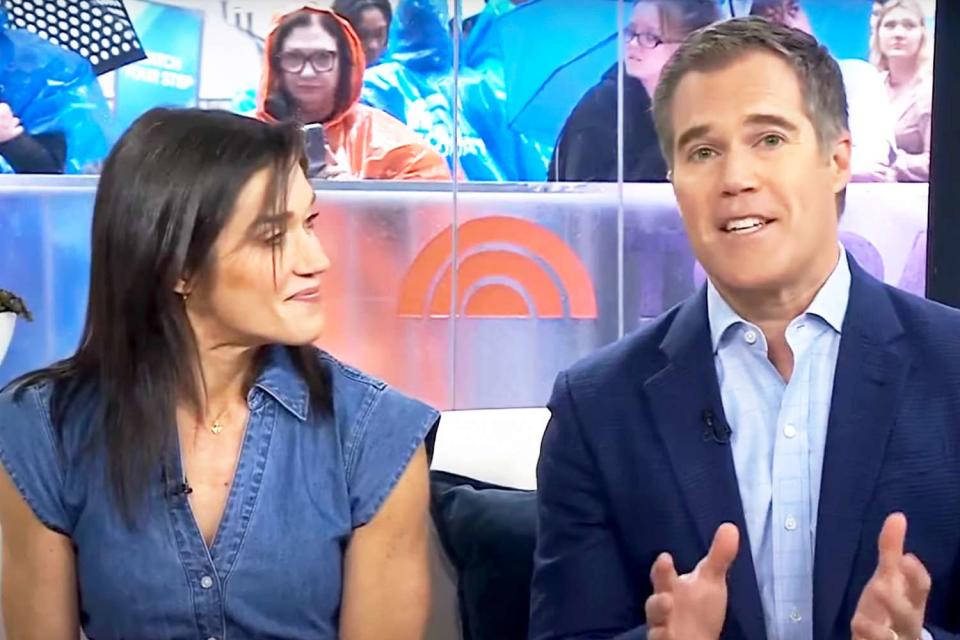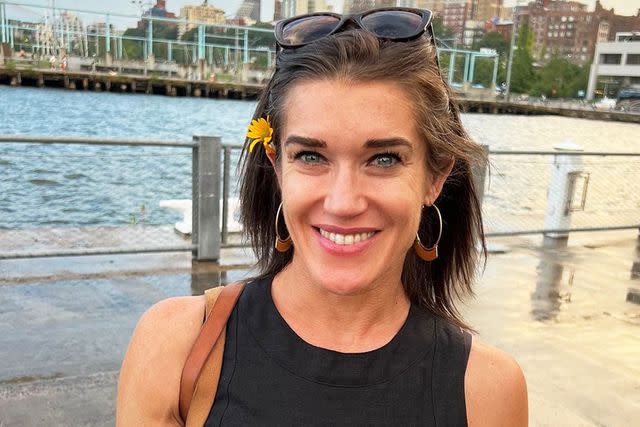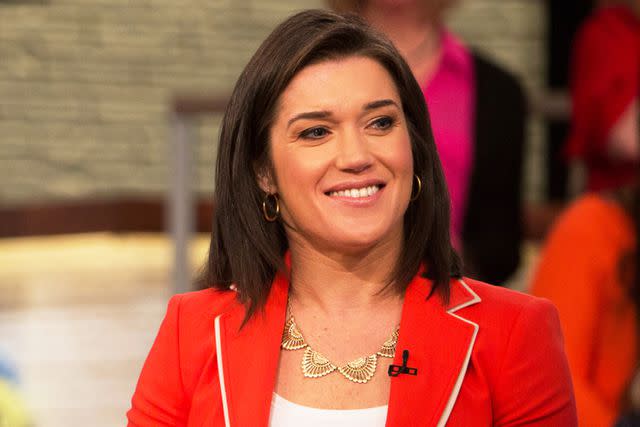Peter Alexander’s Sister Rebecca Recalls Progressive Vision and Hearing Loss Since Age 12 Due to Rare Disease
Rebecca Alexander opens up about being diagnosed with Usher syndrome and becoming a disability advocate

TODAY/YouTube
Peter Alexander and his sister Rebecca Alexander on the Today showRebecca Alexander began struggling with vision loss and hearing loss at age 12 and 13, respectively
She was diagnosed with Usher syndrome, a rare genetic condition, at age 19
She has since become a disability advocate, raising awareness and funds her disease
Rebecca Alexander is opening up about being diagnosed with a rare genetic condition that causes vision and hearing loss.
The New York City-based psychotherapist and sister of Weekend Today co-host Peter Alexander recalled the first signs of her disease appearing when she was a child.
Rebecca had been struggling to see the blackboard in sixth grade when her dad scheduled an appointment with an optometrist. Follow-up exams indicated that Rebecca, then 12, had the rare genetic disorder retinitis pigmentosa, a degenerative eye disease that leads to blindness.
Rebecca told TODAY that she couldn’t “quite comprehend” her vision loss at the time, but she adjusted well. She added that not much of her lifestyle changed throughout her teenage years.
“If I went to a movie, I’d have to grab someone’s arm,” she told the outlet. “Usually in people with retinitis pigmentosa the vision below them can be very difficult. So, I tripped over the dogs a lot.”

Rebecca Alexander/Instagram
TODAY's Peter Alexander's sister Rebecca AlexanderAt the time, Rebecca said she was also struggling with some hearing loss, which progressed to the point where she needed hearing aids at age 13. However, doctors didn’t believe it was linked to her vision loss.
But by the time she got to college at the University of Michigan, she “experienced a significant dip in my hearing.”
“I couldn’t hear people speak to me over the tinnitus. The ringing was so loud,” she said.

Nathan Congleton/NBCU Photo Bank/NBCUniversal/Getty
TODAY's Peter Alexander's sister Rebecca AlexanderAt 19-years-old, Rebecca visited an ophthalmologist and an otolaryngologist, who diagnosed her with Usher syndrome type 3. Usher syndrome is a genetic condition characterized by partial or total hearing loss and vision loss that worsens over time with no treatment or cure.
“We’ve actually never seen it as it presents itself in you. But because of the progressive vision and hearing loss, it can’t be anything else,” her doctor said.
Rebecca, now 45, admitted that it's been difficult coming to terms with her diagnosis.
“Developmentally, I could not really wrap my head around it and I developed these superficial coping strategies,” she admitted. “I felt like if I could just be academically perfect and as physically perfect as possible, then nobody would know there was anything wrong with me.”
Never miss a story — sign up for PEOPLE's free daily newsletter to stay up-to-date on the best of what PEOPLE has to offer, from celebrity news to compelling human interest stories.
Although she initially tried to “run away from this very overwhelming diagnosis,” she decided to embrace it, and to learn sign language.
“I was very curious, and I thought it would be a good skill for me to have,” Alexander said. “On the other hand, I was doing everything in my power to mask what I believed were my flaws.”
Alexander quickly had a shift in her mindset and has since become a disability advocate. She was recently featured in the Usher Syndrome Society’s "Every Second Counts" campaign to raise awareness and funding for the rare genetic condition.
“When you grow up and you don’t have any role models, to be able to become a role model for people that you needed, it almost feels like you’re healing your inner child,” she told the outlet. “(It) feels so incredible that we did it.”
For more People news, make sure to sign up for our newsletter!
Read the original article on People.

